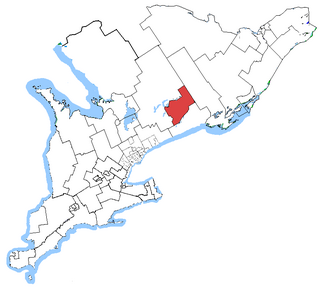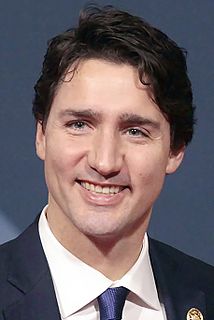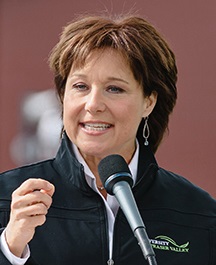
The Canada Elections Act is an Act of the Parliament of Canada which regulates the election of members of parliament to the House of Commons of Canada. The Act has been amended many times over Canada's history.

The National Citizens Coalition (NCC) is a Canadian conservative lobby group that was incorporated in 1975 by Colin M. Brown, a successful insurance agent who strongly opposed public health insurance—medicare. In response to what he perceived to be excessive government spending in Canada, Brown had begun an advertisement campaign in 1967. Its slogan is “More freedom through less government.” campaigns against public sector unions and in favour of smaller government and lower taxes.
Canada holds elections for legislatures or governments in several jurisdictions: for the federal (national) government, provincial and territorial governments, and municipal governments. Elections are also held for self-governing First Nations and for many other public and private organizations including corporations and trade unions. Municipal elections can also be held for both upper-tier and lower-tier governments. Formal elections have occurred in Canada since at least 1792, when both Upper Canada and Lower Canada had their first elections.

Peterborough—Kawartha is a federal electoral district in Ontario, Canada, that has been represented in the House of Commons of Canada since 1953. Prior to the 2015 election, the riding was known as Peterborough.

Elections BC is a non-partisan office of the British Columbia legislature responsible for conducting provincial and local elections, by-elections, petitions, referenda, plebiscites in the Canadian province of British Columbia. Its federal equivalent is Elections Canada.

The Animal Protection Party of Canada is a minor registered political party in Canada that focuses on animal rights and environmentalism. It was formed in 2005 as the Animal Alliance Environment Voters Party of Canada by the merger of two organizations, the Animal Alliance of Canada and Environment Voters. Both parent organizations have been vocal in opposition to the seal hunt in Newfoundland and Labrador, fur farming, trapping, and bear hunting. The party is led by Liz White, a Toronto-based animal rights advocate.

Harper v Canada (AG), [2004] 1 S.C.R. 827, 2004 SCC 33, is a leading decision of the Supreme Court of Canada wherein the Court ruled that Canada Elections Act's spending limits on third party election advertising did violate section 2(b) of the Canadian Charter of Rights and Freedoms but was justified under Section One of the Canadian Charter of Rights and Freedoms.
The 2005 New Zealand election funding controversy occurred in the aftermath of the 2005 New Zealand general election.

The Electoral Finance Act 2007 was a controversial act in New Zealand. The Fifth Labour Government introduced the Electoral Finance Bill partly in response to the 2005 New Zealand election funding controversy, in particular to "third-party" campaigns.
A slate is a group of candidates that run in multi-seat or multi-position elections on a common platform.
Political funding in the United Kingdom has been a source of controversy for many years. Political parties in the UK may be funded through membership fees, party donations or through state funding, the latter of which is reserved for administrative costs. The general restrictions in the UK were held in Bowman v United Kingdom to be fully compatible with the European Convention on Human Rights, article 10.
Dogwood BC is a Canadian non-profit public interest group based in Victoria, British Columbia. The organization works to increase the power of British Columbians over government decision-making. They were instrumental in the fight against Enbridge's Northern Gateway pipeline, introducing a tanker moratorium on B.C.'s north coast and the province's campaign finance reform. The organization currently works to stop Kinder Morgan's Trans Mountain tanker and pipeline expansion in B.C., ban U.S. thermal coal exports through B.C. ports and restore accountability and transparency to the province's democracy by calling for a Corruption Inquiry.
The People's Alliance of New Brunswick (PANB) is a provincial political party registered in the Canadian province of New Brunswick. In the 2018 election, the party won three seats in the provincial legislature for the first time since its founding. The party advocates for "common sense" government and the abolition of the Office of the Commissioner of Official Languages, with a transfer of that office's responsibilities to the office of the provincial ombudsman. The party's platform has been described as "a mixture of economic conservatism, rural populism and opposition to some aspects of official bilingualism and duality".
The financing of federal political entities in Canada is regulated under the Canada Elections Act. A combination of public and private funds finances the activities of these entities during and outside of elections.

The 2015 Canadian federal election was held on October 19, 2015, saw the Liberal Party, led by Justin Trudeau, win 184 seats, allowing it to form a majority government with Trudeau becoming the next prime minister.

The 2017 British Columbia general election was held on May 9, 2017, to elect 87 members (MLAs) to the Legislative Assembly to serve in the 41st Parliament of the Canadian province of British Columbia. In the 40th Parliament prior to this general election, the British Columbia Liberal Party formed the government under the leadership of Christy Clark, while the BC New Democratic Party, under the leadership of Adrian Dix and then John Horgan, formed the Official Opposition; the BC Green Party were also represented in the legislature with sole MLA and later leader Andrew Weaver.
Only quite recently political funding in New Zealand has become an issue of public policy. Now there is direct and indirect funding by public money as well as a skeleton regulation of income, expenditure and transparency.

The 2019 Polish parliamentary elections were held on 13 October 2019. All 460 members of the Sejm and 100 senators of the Senate were elected. The ruling Law and Justice (PiS) retained its majority in the Sejm, but lost its majority in the Senate to the opposition. With 43.6% of the popular vote, Law and Justice received the highest vote share by any party since Poland returned to democracy in 1989. The turnout was the highest for a parliamentary election since the first free elections after the fall of communism in 1989. For the first time after 1989, the ruling party controls one house, and the opposition the other.

The United Kingdom General Election 2015 – Party Spending Investigation was a probe involving the UK Electoral Commission, numerous police forces, and the Crown Prosecution Service into spending by political parties and candidates, primarily during the 2015 general election campaign. This co-ordinated investigation has been described as 'an unprecedented and extraordinary situation'.

The Elections Modernization Act was enacted as Bill C-76 by the 42nd Parliament of Canada under the government of Justin Trudeau as a response to the Fair Elections Act. The bill received royal assent on December 13, 2018, in time for the 2019 Canadian Election.










